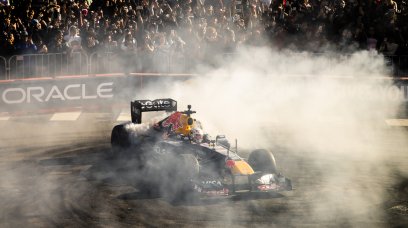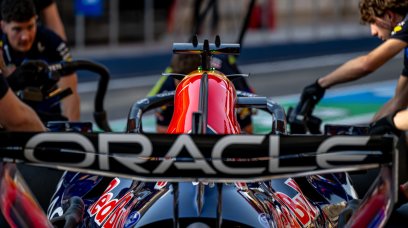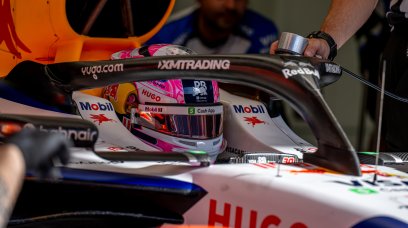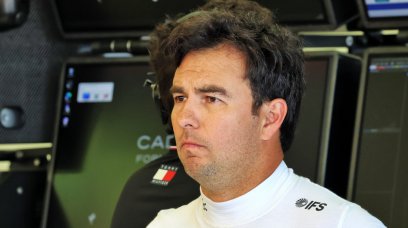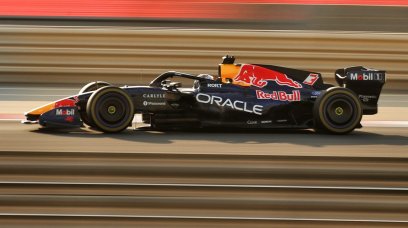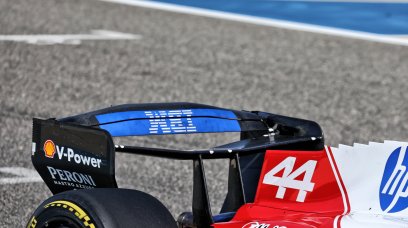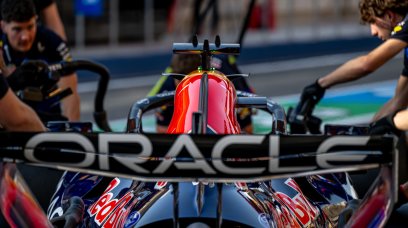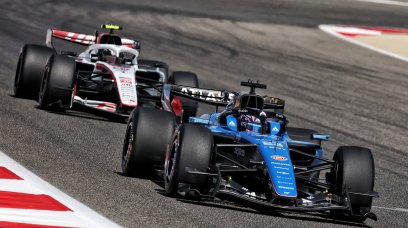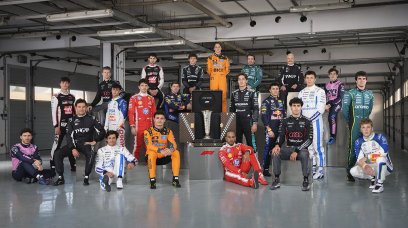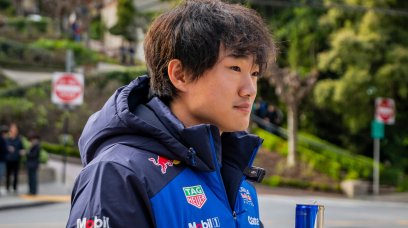Astanding joke in the Formula 1 paddock is that the sport races on allcontinents save Africa and Antarctica – and the latter will befirst to plug the gap even if a Grand Prix around the Bay of Whalesor up the Heiberg Glacier taxes Pirelli's softest compounds to theabsolute limit. Thatsaid, Africa regularly hosted Grands Prix on its southern-mostcountry until 1985 - when F1 bowed to the inevitable and withdrew theSouth African Grand Prix from the calendar in the face of enormous (andjustified) pressure from anti-apartheid activists. Ironically, SouthAfrica's replacement was the Hungarian Grand Prix - staged in acountry under communist rule, without a word of protest… Sincethen, F1 returned to Kyalami twice: in 1992/3. Tellingly, the eventswere staged before Nelson Mandela was elected president and both wererun on the tighter, anti-clockwise layout built in 1987 rather thanon the traditional high-speed racetrack of which old-timers speak sowistfully. Indeed, the two circuits could hardly be more different incharacter despite having some sectors in common. Since1993, numerous attempts have been made to return F1 to South Africa,usually at Kyalami although Cape Town has (thrice) been mooted -including a 2014 project led by Anthony Hamilton, father of Lewis -as was a circuit situated alongside the airport on the outskirts ofDurban. All came to nought for the simple reason that local andnational governments would not (could not?) commit funding to theprojects.
Kyalami constantly referenced for a return
Still,whenever F1 seeks bargaining chips in talks with other venues,references to Kyalami are trotted out; ditto when Lewis Hamilton isasked where he'd like F1 to race next. Result: sensationalistreporting from folk who don't even know the origin of the name orthat some of the best-known sectors were consigned to an industrialpark during the 1987 remodelling. Lest you're wondering: 'Kyalami'translates as 'My home' in Zulu. "Everytime Lewis or Stefano (F1 President Domenicali) mention Kyalami themedia goes into hyperdrive," a source close to the situation told RacingNews365.com during a recent visit to South Africa. "None of thisspeculation is helpful to the cause as it raises expectations," hesaid, adding that local fans' expectations are "raised sky-high,then almost immediately shattered. They've become cynical…" Askedanother local motorsport figure, one I have known for over 20 yearsand who has travelled to Grands Prix at his own (considerable)expense and can thus be classed as a true fan: "Why this obsession[with a SAGP]? We [South Africa] are way too poor; witness thedevastation in [storm-hit Natal province], electrical load sheddingand blackouts, etc." His subsequent WhatsApp messages were moreexplicit.
A consortium aims to bring a race to Kyalami
Still,Warren Scheckter, nephew of Ferrari's 1979 World Champion Jody, ishopeful of pulling all strands together to stage a race within thenext two years. He and former SAB Miller [brewery] heavyweight KeithDoig founded the SA Grand Prix Corporation in 2015 and have thus beenover seven years in the trying. They were granted sole rights to aSAGP - these have now elapsed - by F1 early in the process. Warren- son of sometime F1 driver Ian - confirmed that the rights haveexpired, but the consortium remains hopeful of returning F1 to SouthAfrica. So, what is the latest situation, RacingNews365.com askedScheckter Jnr., in the wake of widespread speculation that a return toKyalami was imminent. "We'veworked with Formula 1for quite a number of years to try and makea [Grand Prix] in South Africa happen,and that's still an ongoing conversation," heexplained. "We're working hardwith them to try and make sense of a business plan for South Africa.We're making good progress,but we still have some work to do. It'slooking good, but not done yet." Healso suggested the hype is unhelpful for similar reasons outlinedabove, and concedes that unless a deal is signed within the next twoyears - 2024 at latest - SAGPC will need to reconsider its existence,spelling the end of the dream. "I don't think we'dwant to go beyond 2024;we haven't given up hope on '23but it's unlikely because of the congested calendar," he said. "Logistically, it's a tight timeline for us.If we were to look at 2024, itwill be the absolute latest if we were to do it, so,yeah, we wouldn't go beyond that." That'sclear, then: 2024 or bust, despite eight years of effort and thesupport of Jody, who acts as chairman of the project. Against thatbackground, if they can't pull it off, who can?
Why is Kyalami unlikely to host a race?
Why,then, is it so difficult to cut a deal for a venue with such a longand illustrious history, albeit forged mostly on the now-supersededlayout? The bottom line is the country's political imperativescombined with a delicate economy hit particularly hard by COVID-19. Inshort, South Africa faces massive political and social challenges,and while F1 may provide a brief PR fillip and boost tourism, thefact is a SAGP won't build the schools, hospitals, andinfrastructures the nation desperately needs. F1 is perceived as anelitist sport beyond the reach of indigenous Africans - forget notthat Hamilton was born in Britain to a West Indian father and Englishmother - and is thus a hard ministerial sell. Indeed,Scheckter admits they are looking to the private sector to massagethe numbers into place: "We're looking at a combination ofeverything from corporate partners to private investors tosome support from government in a very small way, but nothingmaterial [from state coffers]." SAGP'sbusiness model, if successful, would be to rent the Kyalami from itsowner, the Toby Venter family trust. Media reports (erroneously) haveit that Porsche is somehow involved in the circuit, but the truth isthat Venter is regional franchise holder for the brand (andLamborghini and Bentley) in the country, with the circuit a separateif complementary project. Porsche AG have zero skin in the Kyalamigame. Saliently,Kyalami is now a major conference venue – having hosted but asingle race meeting in two years: January's international GT race.The circuit holds a Grade 2 FIA licence which expires shortly andwould require upgrades to crash barriers, run-off areas, and medicalfacilities to make the level required for F1. Garages require revisedaccess, while the current paddock is too narrow to accommodatehospitality units.
The massive commercial risks of hosting a race
Indeed,the word is that F1 in October 2020 enquired about Kyalami'ssuitability for a COVID (spectator-free) race; talks came to nought:apart from Covid quarantines, extensive changes would be required andfreight logistics were complex: the country sits at the end ofone-way flight. Given the current capacity of 20,000 grandstandseats, double that would be needed to bring spectator numbers up to amaximum of 60,000. Ventersees no need to upgrade Kyalami to F1 standards unless a Grand Prixeventuates, and such work does not come for free; thus SAGPC wouldneed to guarantee the costs of elevating the circuit to Grade 1levels plus maintaining the category licence for the contractduration. These costs would ultimately be reflected in the circuitrental, and thus ticket prices. Let'sdo the maths: F1's average hosting fees pan out at $30m per race(before escalators), but a South African round would be in the higherreaches due to travel and freight costs, so around $35m. Add incircuit rental, Grade 1 costs and grandstands, and the figure spiralsto $40 before promoter fees (marketing, security, ticketing etc) ofanother $5m – $45m all in at absolutely minimum. TheSouth African Rand currently trades at R15: $1, so R675m. GivenKyalami accommodates maximum 60,000 spectators and promoters havelittle or no other income, break-even is R12k per ticket, or morethan many local teachers earn monthly. State subsidies would reducethe price but imagine the outcry – leaving SAGPC and privateinvestors to run massive commercial risks to stage an event thatwhisks valuable foreign currency out of a cash-strapped country. Thereare, though, two other alternatives for a race at Kyalami: thecircuit, i.e. the Venter trust, promotes the event for its ownaccount, or F1 enters into a joint-venture with SAGPC and/or Kyalamidirectly. Apparently, F1 has turned a J-V, although it has no qualmsabout such an arrangement in the USA. Possibly Kyalami is on thewrong continent…
What are the chances of a South African GP ever returning?
Venterwould, of course, be delighted to have Kyalami stage a Grand Prix,provided someone else pays the fees – the rental is, after all, whereit's at for him. "Absolutely,"he confirmed when the question was put to him by RacingNews365.com during a track inspection last week, but he reiterated that Kyalamiis not in a position to pay the hosting fee: "We don't own therights; Kyalami will not be able to pay the hosting fee as such, butwe will be able to organise the [Grand Prix] and we are able toprovide the circuit. "Alternatively, a joint venture which I still dobelieve is not beyond our reach." Thus,two of the three pillars that are crucial to the running of such anevent - namely venue, promotion, and hosting fees - could be providedby Kyalami, leaving the thorny question of hosting fees, which isprecisely where every project has come unstuck, whether at Kyalami,in Cape Town or Durban. Significantly,Scheckter confirmed that SAGPC does not hold an exclusive deal withKyalami, merely that the circuit would be their preferred choice werea deal to come together but does not discount a street raceelsewhere. Cape Town? "Fromthe government side a street circuit would be preferable," he said. "It would essentially showcase a lot more [of the country]and put something back into the economy; it'll create more jobs. ButKyalami is already built up, so it's a more cost-effective optionwhich is a key factor because getting the right funding in place isdifficult." Sothat is the situation from various perspectives: Kyalami is ready andwilling to stage an event if all costs are covered; SAGPC is hopefulof raising the requisite funding but admits that state support isunlikely and F1 aims to tick a box marked 'Africa' but only ifsaid carton contains around $35m. What,then, has changed since 1993? Absolutely nothing, so much so that aSPGP remains more likely than a SAGP – yes, South Pole could stillbeat South Africa to it. Alternately, Morocco could stage the nextAfrican Grand Prix – don't bet against it as an Africabox-ticking exercise.
Most read
